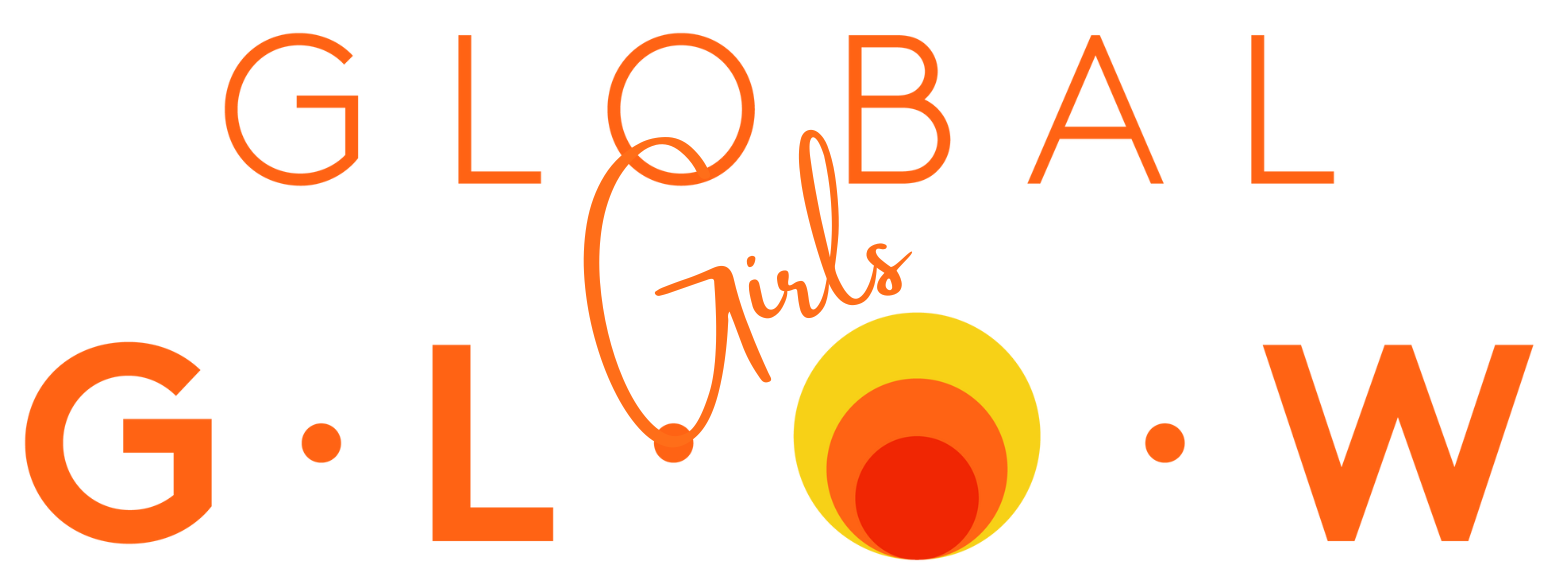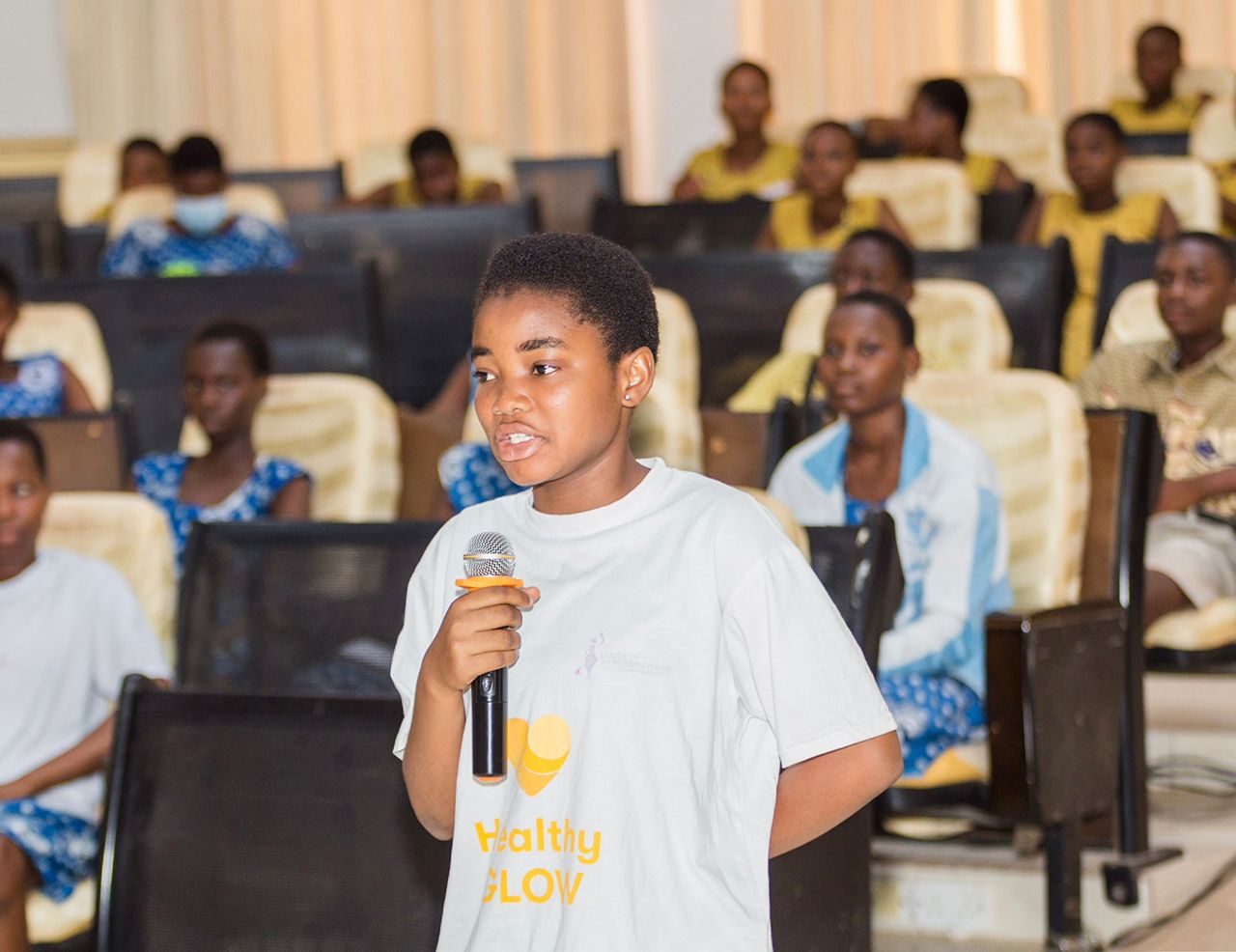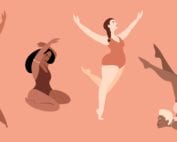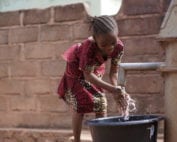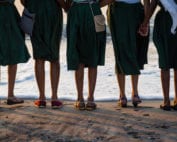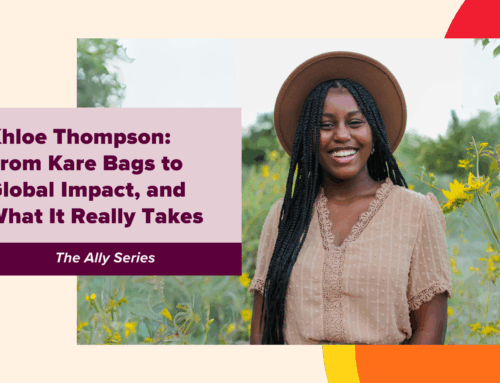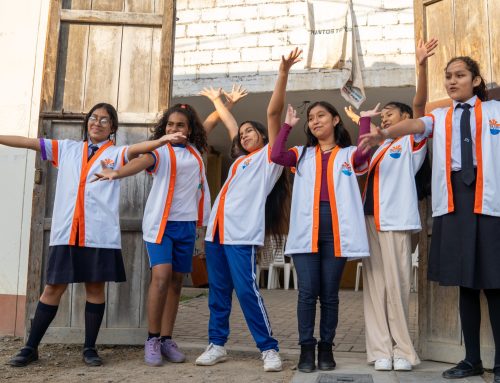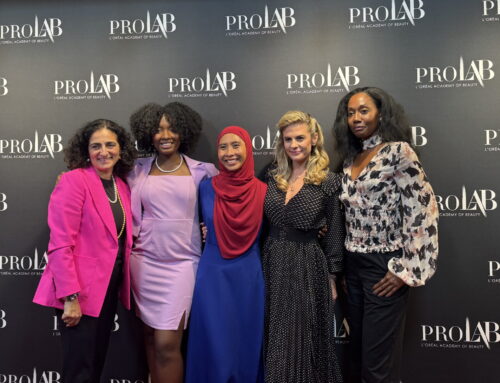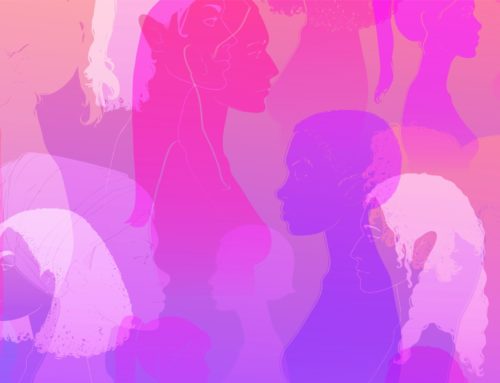Fatima Advocates for Sexual and Reproductive Health Education in Ghana
One of the greatest barriers to success for young girls is lack of access to education about sexual and reproductive health. When girls understand their bodies and their rights, they establish bodily autonomy, make safe and healthy decisions, and understand their value.
While progress has been made in recent decades, many countries around the world still suffer from high maternal mortality rates, high transmission of sexual infections, and widespread period poverty and stigma.
Reproductive health education is vital to strengthening women and communities. Global G.L.O.W. programming introduces adolescent girls to principles of sexuality, healthy relationships, consent, puberty, menstruation, and more.
19-year-old GLOW Club member Fatima in Ghana uses her GLOW Club education to inform other young people about their sexual and reproductive health as a board member on the Ghana Sexual Reproductive Health and Rights Alliance for Young People.
Here’s her story, in her own words (condensed and edited for clarity):
The Challenges of Reproductive Health Education in Ghana
My name is Fatima and I am a senior high school student in Ghana, a member of GLOW Club, and a Youth Advisory Board member for the Ghana Sexual Reproductive Health And Rights Alliance For Young People (Ghana SRHR Alliance). We work with young people on sexual and reproductive health while encouraging meaningful participation in health rights for young people. I love to be a part of decision-making and working with youth on reproductive health issues.
In my community, a lot of young girls face reproductive health problems, including stigmatization about menstruation. Young girls lack important information about their sexual health.
“I advise others to look beyond the comments and stigma and see the good in sexual health education because it’s the right thing to do.”
I’ve also found that young girls are sometimes unwilling to learn more about their sexual health because they feel the topic is too personal, and they often shy away from talking about their reproductive system, menstrual cycle, and other related conversations.
In rural areas of my country, there is a lack of access to reproductive health information and support. Where I live, however, there is accessibility to organizations and resources for sexual and reproductive health. The difficulty is that young people are not always willing to seek out more information.
Using GLOW Club to Educate Others
In GLOW Club, I received education about sexual and reproductive health. I learned about the shame surrounding menstruation and how to deal with it. Through the knowledge I gained from GLOW Club and with guidance from my mentor, I was motivated to become a board member for the Ghana SRHR Alliance.
In the Ghana SRHR Alliance, we are taking steps to educate young people on reproductive health and rights. We use social media, radio and TV stations, and more to share information about reproductive health. We celebrate international days, like Menstrual Hygiene Day, and create awareness with the help of other civil society organizations.
Sometimes youth are deprived of making decisions for themselves, but through the Ghana SRHR Alliance, we involve youth and seek their consent when discussing sexual health.
We encourage young people to talk about sexual protection because we know that it’s alright to talk about these things. There is a benefit to youth knowing more about sexual and reproductive issues, and we work to outline the importance of education on these topics.
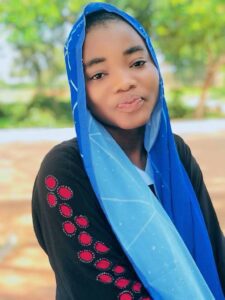
“We encourage young people to talk about sexual protection because we know that it’s alright to talk about these things. There is a benefit to youth knowing more about sexual and reproductive issues, and we work to outline the importance of education on these topics.“
Education will carry on to others as more and more young people are educated. Through education, I believe our problems can be solved over time.
Normalizing Conversations on Reproductive Health
Moving forward, I plan to continue collaborating with my colleagues to educate young people on sexual health issues. We can continue to use social media platforms (Instagram, Twitter, and Facebook) that youth engage with in order to educate them further.
I see a bright future for us. I believe that discussion about sexual and reproductive health will soon be a normal thing for young people. Then, the problems that we are facing, namely period poverty and period shaming, will be minimized.
If our intentions for increased education are carried out, I believe we can achieve gender equality that will not only impact our community, but also change our world for the better.
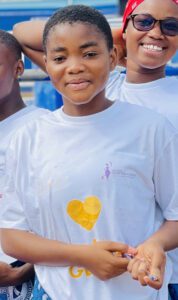 My advice for others who are passionate about reproductive health education is to not be discouraged by negative comments. Some people may find that the education we are receiving about our sexual health and rights is a resistance to society. It’s not about that.
My advice for others who are passionate about reproductive health education is to not be discouraged by negative comments. Some people may find that the education we are receiving about our sexual health and rights is a resistance to society. It’s not about that.
We should understand our sexual and reproductive health and rights. We should also try to educate others about their importance. This is essential information for young girls who are developing into women.
I advise others to look beyond the comments and stigma and see the good in sexual health education because it’s the right thing to do. Keep working hard. We are future leaders, and when we work together we will make a difference.
Special thanks to The League of Young Female Leaders, who operate Global G.L.O.W. programming in safe, small group after-school sessions for Fatima and other youth participants with trusted local mentors.
Global G.L.O.W. partners with community-based organizations in 30 countries to operate mentorship-driven programs for girls ages 10-18. Our SEL-based curriculum gives girls the tools to express themselves, advocate for their rights, and challenge the most critical barriers to achieving gender equality. Support our work at globalgirlsglow.org/donate.
